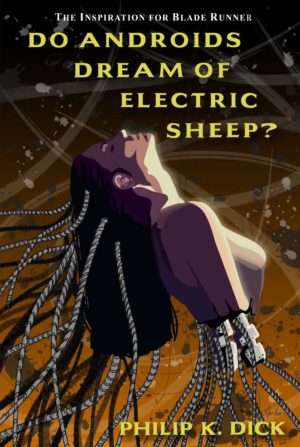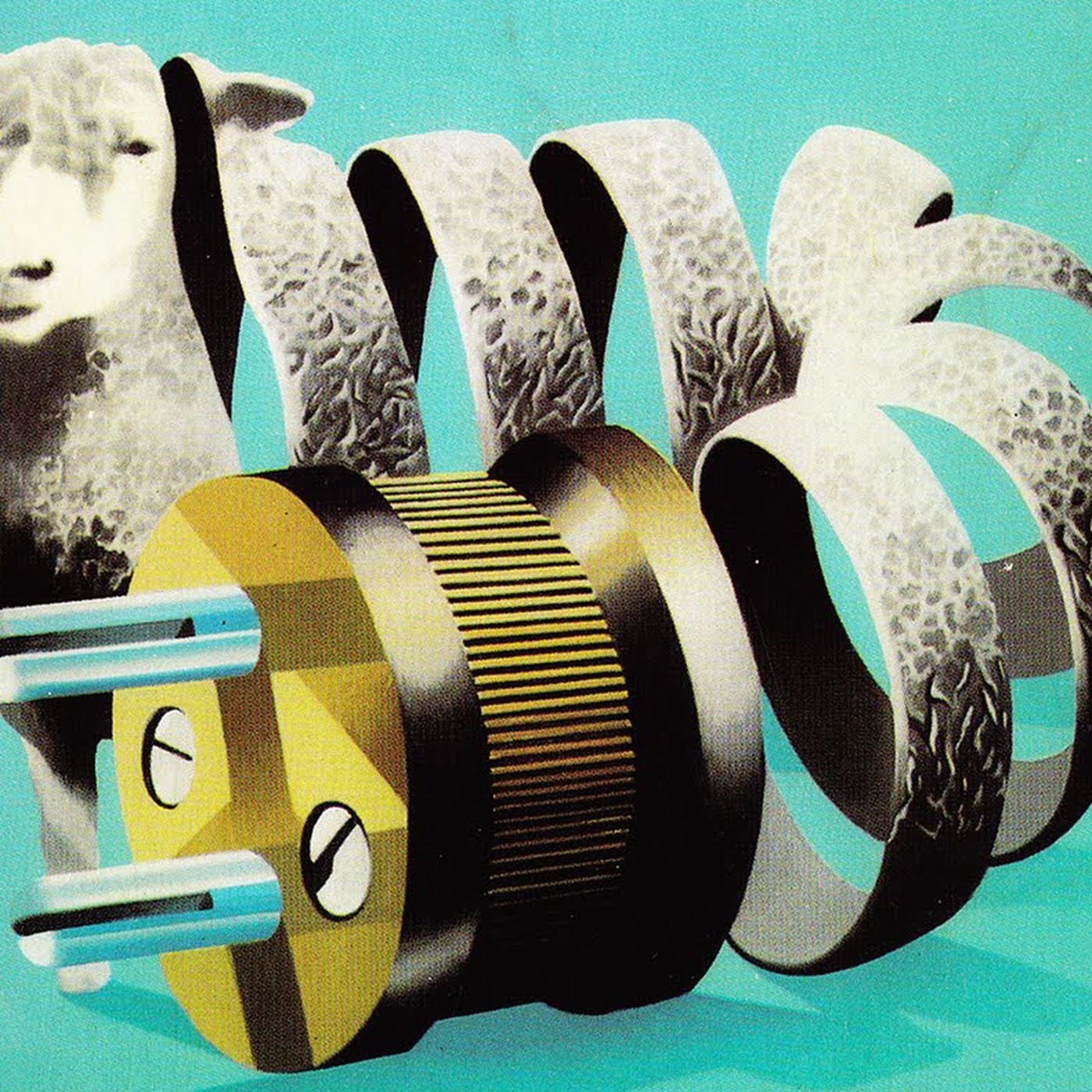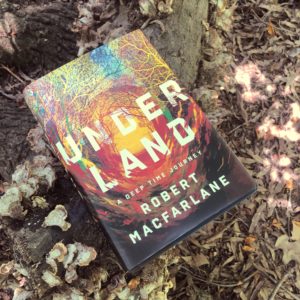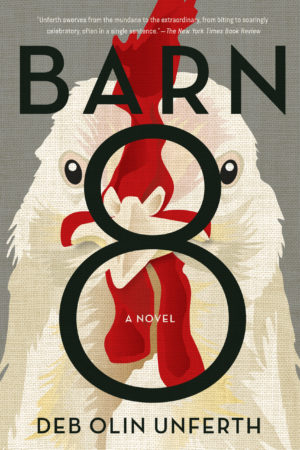
“BARREN: The Primary Themes in the Novel that Inspired Blade Runner” by Nicolas D. Sampson
Philip K. Dick’s Do Androids Dream of Electric Sheep? is a delicious sci-fi yarn that focuses on the ontology of intelligence, biological or otherwise, and the limitations of one’s choices.
DADOES is also a cautionary tale that points to a collapsing world where biology no longer thrives.
Above all, it’s an allegory on the merits and dimensions of life and death – a genre-driven exploration of survival’s brittle complexities.
Some may call the story precognitive, a commentary on life that turns all too relevant as time passes.
To deliver his message, the author opts for a combination of old-fashioned mystery and human emotion. He builds a futuristic world where space migration is the norm, and law and order, shady business. He puts together a page-turning slow-burner that may be taken at face value, a detective story about androids and their hunters, the ravaged land in which they operate, the aftermath of environmental collapse. Look deeper, though, and there is an existential narrative to savor, a meditation that explores the obscure lines between human life and Artificial Intelligence, offering the reader a crunchy layer to chew on long after the book has been finished.
Even deeper lies the idea of life as a set of parameters, exploring what happens to an individual should those parameters be tested.
To achieve his goal the author broaches a couple of massive taboos:
- Humans have sex with androids
- Humans feel empathy for androids, and thereby question the boundaries and extents of life itself
(Note that DADOES was first published in 1968.)
At the same time the author addresses the topic of barrenness through the use of allegory, in particular that of raising children vs. remaining childless, which in turn involves the meaning of life, if any.
Everything unfolds in a manner that reveals the effects of technological advance in the wake of personal and spiritual erosion.
The story takes place on post-apocalyptic Terra (a radioactive, desolate, post-war Earth) where the dust eats away at all things biological and most animals have died. The authorities are urging people to emigrate to Mars and to other space colonies, all of them dangerous locations, as everyone knows, yet much less so than Terra.
One scene in particular stands out, encapsulating the above points. Rick Deckard, our main character, is one of the few Terrans to have stayed behind, a choice he questions all the time, reminded of its repercussions by the daily warnings:
‘…The saying currently blabbed by posters, TV ads, and government junk mail, ran: “Emigrate or degenerate! The choice is yours!” Very true, Rick thought as he opened the gate to his little pasture and approached his electric sheep. But I can’t emigrate, he said to himself. Because of my job…’
In a few lines we learn the stakes. Deckard has stayed behind despite the risk. It has something to do with his job, or so he claims. He may be making up excuses, blaming it on hierarchy’s beaver.

But the juicy part is in his pet sheep, an electric sheep, to be exact. The attribute of the pet matters. This robotic animal not only fails to give meaning to Deckard’s life (he mentions it just as he explains the most important decision of his life, then, as we will see later, calls it a ‘fraud’) – it not only establishes the motif of artificial intelligence – but also introduces a subsidiary theme, that of reproduction and self-generation, linking the concept of the barren Terra with a ‘sheep’ unable (by design) to reproduce, ironically owned by a childless man who has stayed behind on a barren planet.
The setup colors the allegory, the allegory completes the setup. But it takes a little help of a supporting character. Deckard’s neighbor, Bill Barbour, owns a flesh-and-blood horse, and the following exchange takes place between the two men:
‘“My horse,” Barbour declared beamingly, “is pregnant.” He indicated the big Percheron, which stood staring off in an empty fashion into space. “What do you say to that?”
‘“I say pretty soon you’ll have two horses,” Rick said. He had reached his sheep, now; it lay ruminating, its alert eyes fixed on him in case he had brought any rolled oats with him. The alleged sheep contained an oat-tropic circuit; at the sight of such cereals it would scramble up convincingly and amble over. “What’s she pregnant by?” he asked Barbour. “The wind?”
Bill goes on to explain that he’s used fertilizing plasma, which he obtained though his contacts at the State Animal Husbandry Board. The board, he elaborates, is eager to obtain horse offspring.
Rick envies his neighbor but is eager to save face:
‘“Ever thought of selling your horse?” Rick asked. He wished to god he had a horse, in fact any animal. Owning and maintaining a fraud had a way of gradually demoralizing one. And yet from a social standpoint it had to be done, given the absence of the real article. He had therefore no choice except to continue. Even were he not to care himself, there remained his wife [Iran], and Iran did care. Very much.’
The scene is a semiotic triumph, effective through subtlety. The lines convey a broken legacy and all the isolation and insecurity that come with it. The pitfalls of austerity, the ensuing ruminations. Children are not mentioned, merely insinuated. The pets stand in as substitutes, the implication an afterthought.
It links back to general choices. Any situation that keeps a person grounded is dangerous, the story suggests. ‘Stay put, pay the price!’ Anytime we’re stuck to something, anything, be it a job, a house, an idea, even a spouse or family, or perhaps the planet itself, or perhaps an idealized but corroded version of ourselves, unable to make a move when necessary, we risk degeneration, as do those who depend on us. The ability to move – in this case, very literally, to relocate to other worlds – in order to deal with ever-shifting circumstances is paramount to survival. Life is perpetual migration, adaptation, reinvention, and the active dodging of obsolescence. One ought to at least try.
In fact, the story suggests, there’s always a choice, something we can do to stave off the imminent threat, whatever it may be. Postpone the end, have another shot at life. Avoid obscurity, be relevant. People have that ability, innate and hardwired, but some choose to sacrifice it, forego it, ignore it at their own risk, sometimes consciously, other times out of naivety. All who remain tethered to the past, holding on to it with regret or pathos, whatever their reasons and reasoning, are at a disadvantage. Unable to make their move when it matters, where it matters, for the right cause, their lives and legacy will be ‘lost in time, like tears in rain.’ Some because they fail to act, others because they have taken the wrong initiative, ending up in a crushing bind.
It’s an apt, poignant, endearingly poetic message. DADOES proposes that only the kinetic are relevant, individuals with motives worth pursuing, and out of those only the adaptive survive. They and they alone stand a chance to make it through the gauntlet of time. The rest are left to contemplate their barren nature in the wake of a transitory, if not fraudulent existence, dreaming of shallow substitutes to a life they dared not – or were incapable to (by design?) – claim for themselves.
*
Nicolas D. Sampson is a writer-producer based in the UK and Cyprus. His stories were published in Panorama: The Journal of Intelligent Travel and The Scofield (edited by Scott Cheshire). His essay “Hoja and his Shadow” on Orhan Pamuk’s novella The White Castle was edited by Madhushree Ghosh. His short story “Flames and Shadows,” was edited by Ru Freeman, and nominated for a 2018 Pushcart Prize. His film projects include “Behind the Mirror” (writer/producer – winner of Best Thriller in the Manhattan Film Festival 2015), “Vita and Virginia” (executive producer), and “Show Me The Picture: The Story of Jim Marshall” (executive producer).




